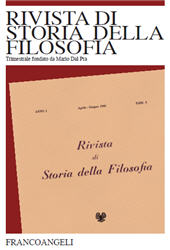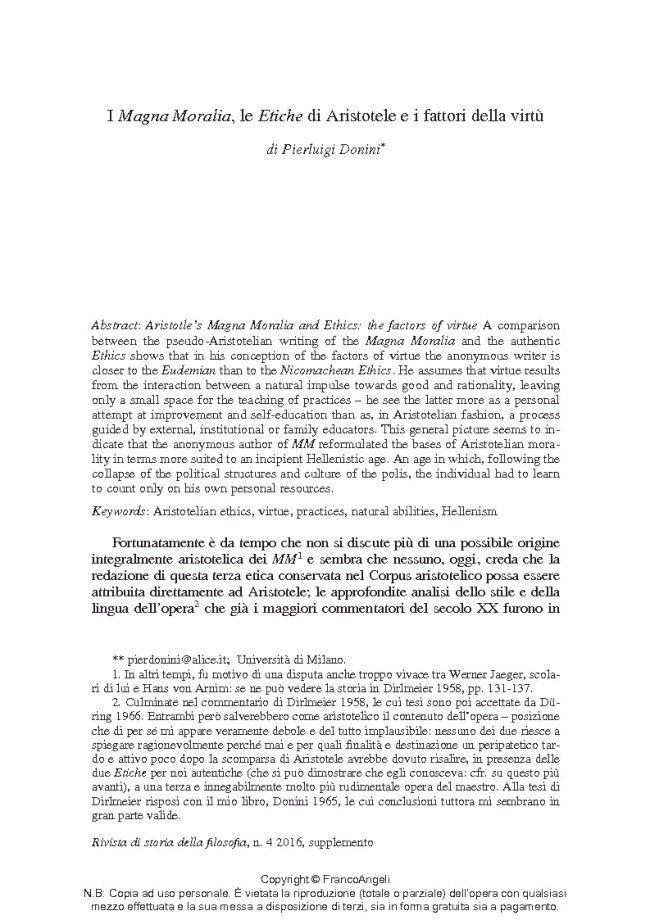Magna Moralia, le Etiche di Aristotele e i fattori della virtù
5-21 p.
A comparison between the pseudo-Aristotelian writing of the Magna Moralia and the authentic Ethics shows that in his conception of the factors of virtue the anonymous writer is closer to the Eudemian than to the Nicomachean Ethics. He assumes that virtue results from the interaction between a natural impulse towards good and rationality, leaving only a small space for the teaching of practices – he see the latter more as a personal attempt at improvement and self-education than as, in Aristotelian fashion, a process guided by external, institutional or family educators. This general picture seems to indicate that the anonymous author of MM reformulated the bases of Aristotelian morality in terms more suited to an incipient Hellenistic age. An age in which, following the collapse of the political structures and culture of the polis, the individual had to learn to count only on his own personal resources. [Publisher's Text].
-
Articles du même numéro (disponibles individuellement)
-
Informations
Code DOI : 10.3280/SF2016-004-S1002
ISSN: 1972-5558
DISCIPLINES
KEYWORDS
- Aristotelian ethics, virtue, practices, natural abilities, Hellenism



